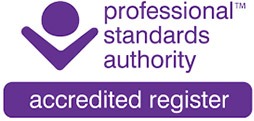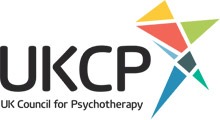This statement on Humanistic Practice as an Organisation is based on UKAHPP’s Statement of Core Beliefs and the Codes of Ethical Principles and of Practice. It is intentionally addressing both UKAHPP members themselves and members of the public who would like to know more about how UKAHPP works humanistically. UKAHPP is an inclusive organisation, integrating a range of views from within humanistic practice. We seek the active involvement of the membership in running the organisation. All members of various committees, working parties and in other roles give their services and time without payment.
Core Beliefs and Practices
As an organisation, we aim to practise and demonstrate the organic processes parallel to those of a healthy human being. These include being able to hold complexity; knowing when to conserve and when to embrace change in order to thrive; having an awareness of our needs as an organisation; being self-examining as well as open to different perspectives and experiences; holding ourselves in ethical and spiritual good faith; being willing to actively adopt new practices where appropriate so that growth and development is enhanced, whilst honouring and maintaining what still works well. We aim to apply the same criteria of respect, empowerment, authenticity, etc. that we have for our clients to ourselves as members of an organisation and to others we interact with. These might be our own membership, other organisations, members of the public and society as a whole. In such interactions we acknowledge human uniqueness; a need to balance intellect, spirit, emotions and the reality of the body; individual and corporate autonomy and responsibility; and the existence and importance of human shortcomings and a shadow side.
Relationships and Responsibilities within the Organisation
Just as in counselling and psychotherapy the therapeutic relationship is the main agent of change, healthy, open and clear relationships within the organisation and with others are crucial to the well being of the organisation. In our relationships with other members, this requires us to have humility in responding to others’ offerings. We know that just as individual practice is determined by our own core beliefs, in our organisation we are interfacing with the core beliefs of others. We need to be open to hear and experience difference. We therefore see organisational relationships as incorporating a shared responsibility to view conflict and disagreement as a type of communication that takes many forms, including overt and covert aspects, all of which require compassionate and respectful handling.
Equal Opportunities
In its dealings with potential and present members, other organisations and members of the public, UKAHPP as an organisation endeavours to practice the same principles of equal opportunities that its members apply as individual practitioners. UKAHPP aims not to discriminate or collude with discrimination on the basis of race, colour, gender, sexual orientation, age, religion, national origin, marital status, political belief, mental or physical handicap or any other preference or personal characteristic, condition or status. Recognising the significance of institutional prejudice and the capacity of any organisation to develop blind spots in their experience and thinking, UKAHPP is open to the possibility of criticism on such issues, and will arrange training and development where appropriate.
Humanistic Research
UKAHPP is an organisational member of the United Kingdom Council for Psychotherapy (UKCP) and maintains informal links with other organisations such as the British Association for Counselling and Psychotherapy (BACP) and the Association for Humanistic Psychology in Britain (AHPB) and in so doing has access to new ideas and research in the field of humanistic therapies. UKAHPP also endeavours to maintain informal links with a range of other related organisations, via the personal connections of members, and is keen for members to share new experience and thinking. New research can be supported and disseminated via UKAHPP’s events and workshop programme, and in the journal Self and Society.
Ethics Committee – July 2003

